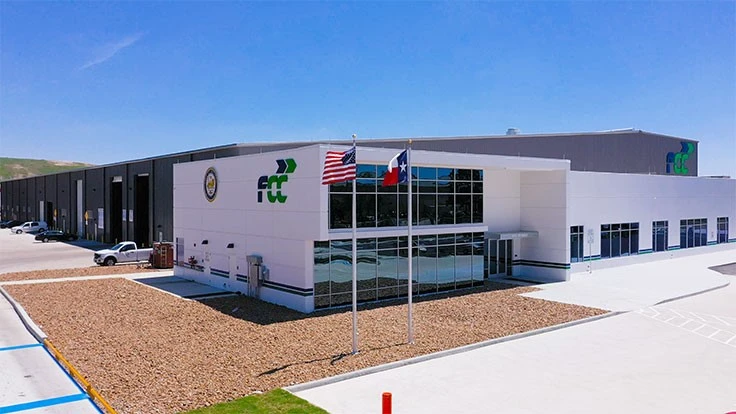
FCC Environmental Services
FCC Environmental Services, the U.S.-based subsidiary of Spanish company FCC, says its new Houston-based single-stream material recovery facility (MRF), which opened in March, will accept residential material from throughout Houston for a minimum of 15 years.
FCC has made the city the new home of its U.S. corporate headquarters, settling into the East Houston community. The district has embraced the recycling facility as a “welcome investment” in an underdeveloped part of town, according to a news release. In addition, FCC employs many local citizens at the site, including some from a second-chance labor provider.
FCC won the bid in 2018 for the city of Houston after besting several proposals from competing companies. FCC’s contract “ensures the city will never have to pay FCC processing costs in excess of the cost per ton of landfill disposal, even if market value of recyclables dips.” FCC will also split profits with the city fifty-fifty.
The deal expands the types of materials accepted by reinstating glass into the program after a three-year suspension under the city’s previous contract. Residents can throw glass into their collection bins once again, and with a state-of-the-art glass cleanup system, FCC says it is able to make recycled glass clean and sellable to two local glass end markets.
FCC purchased its 35 ton-per-hour system, including the glass cleanup system, from supplier Van Dyk Recycling Solutions (VDRS), Norwalk, Connecticut. The system uses a combination of nonwrapping screens and five optical sorters to separate residential mixed paper and fiber, old corrugated containers (OCC), polyethylene terephthalate (PET), high-density polyethylene (HDPE), polypropylene (PP), aluminum cans and mixed rigid plastics. All materials are baled in a Bollegraaf HBC-120S baler. The system has the capacity to process 145,000 tons per year, which is more than double the city’s current needs.
FCC had previously worked with Van Dyk on a 2016 single-stream system for Dallas. That system won the National Waste & Recycling Association’s (NWRA) Recycling Facility of the Year award in 2017.
Houston’s system is a similar concept, with some added technology, including an extra optical sorter for removing containers, waste and film from the fiber stream and an automatic film recovery system with a suction hood integrated with the Tomra, Asker, Norway, material separation housing. Houston also added an elliptical ballistic separator to properly clean up and prepare the container stream for the optical sorters.
Latest from Recycling Today
- Ferrous market ends 2024 in familiar rut
- Aqua Metals secures $1.5M loan, reports operational strides
- AF&PA urges veto of NY bill
- Aluminum Association includes recycling among 2025 policy priorities
- AISI applauds waterways spending bill
- Lux Research questions hydrogen’s transportation role
- Sonoco selling thermoformed, flexible packaging business to Toppan for $1.8B
- ReMA offers Superfund informational reports





